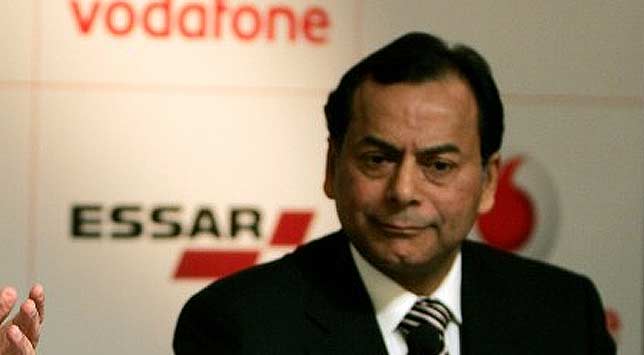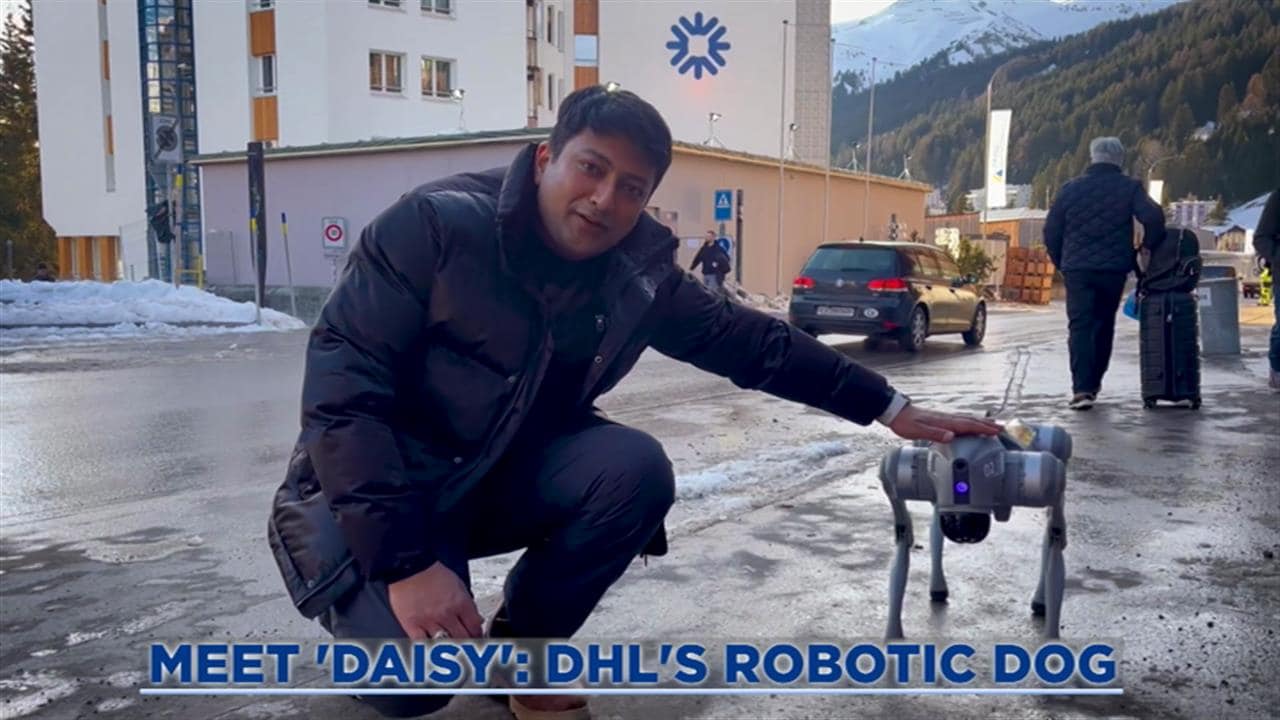

- Home/
- Top Stories/
- Planning to invest over $1 billion in India: IFC CEO
Planning to invest over $1 billion in India: IFC CEO

Highlights
- Speaking to NDTV's Ira Duggal at the World Economic Forum in Davos, Lars H Thunell, EVP and CEO at International Finance Corporation, said that IFC is planning to invest over one billion dollars in India.
International Finance Corporation (IFC), a unit of the World Bank, has plans to invest in economically underdeveloped, low-income states of India.
Speaking to NDTV's Ira Duggal at the World Economic Forum in Davos, Lars H Thunell, EVP and CEO at International Finance Corporation, said that IFC is planning to invest over one billion dollars in India.
Below is the complete interview.
Ira: What’s happening, the big agenda here continues to be on the management of the European crisis? How do you see the global environment?
Thunell: We are in a situation, where we will have to be careful because we are at the brink and things can go difference ways. Hence, it is important that the leaders have to come together at Davos and have discussions not only about how to muddle through but how to take proactive action to really move forward. We also need to come out of the situation we are in, the financial crisis that started in 2008 has moved into a kind of an economic crisis for many countries. There is a question mark on jobs, especially for the young people around the world. Today, we saw IMF coming out with new projections cutting it down and also saying that if Western Europe doesn’t come through that, then we will have a production of 4 per cent in growth, which is a big number.
Ira: But the agenda economically seems to have shifted a little bit last year; the focus was entirely on austerity but now people are saying that austerity is damaging growth. Thus, we now need to focus on growth and then get back to austerity in medium term...
Thunell: Yes, absolutely! You can’t starve yourself to health; you will have to start thinking on how we actually start to get growth in and how do we employ our people and create economic growth. I think that’s the debate. We need to continue with austerity measures. Taking those measures, making the structural reforms and making countries take Greece more competitive is important.
Ira: Since you are the private sector arm of the World Bank, you lend to various companies, individual corporates. Now one could make the connect that global financial markets are tough, lots of sovereign borrowing in the global financial markets, perhaps the element of capitals are coming down. Is there any connect or obvious impact on the IFC’s business?
Thunell: We are AAA rated, so there is a fight to quality right now, so we have no problem getting funding. But more importantly, there is a role for us to counter cyclical when normal sources of funding disappears and that’s when we should step in and be more aggressive than we are normally. We are trying to do that, keep our volumes up even if demands come down for the regular top of manufacturing investments in many companies, which still need working capitals. We work a lot with the financial secretaries; especially try to reach out to the smaller medium size enterprises through them because that’s where you are going to create jobs. In most economies, jobs are with the SMEs sector.
Ira: So did the lending pick up in 2011, I mean counter cyclical that would assume last year? This year is it expected to do more lending?
Thunell: We are seeing demand and we are trying to adapt our programmes. The product mix is shifting a little bit and we a seeing demand across the board client. Usually, if you see India in infrastructure for example, then we need to keep on moving these projects forward.
Ira: Before we get to India’s infrastructure, geographically what’s your mix right now of investments, where are bulk of your investments are going? You have a very large and substantial portfolio in India for instance...
Thunell: India is our largest portfolio country but once we are trying to focus as much as we can on poor countries, what we call the IDA countries, including India. However, Africa is very important for us and even Central Asia, but within these countries also we try middle income countries. We try to also focus on the poor parts of the countries. So if you take China, we don’t really do business in Shanghai and Beijing but up in the North Western corner; that’s where we try to we work. In India, we try to work with poorer states and have special efforts supporting industries there and investments there.
Ira: The need for job creation is the big theme here at Davos. Are you consciously or unconsciously looking at sectors, which are high employment generating sectors for instance?
Thunell: Yes and I think that’s why we are trying to support the financial sector. We are also focusing on infrastructure, which is very important. It actually needs stimulus. We have a lot of focus on right now on the whole agriculture sector and supply chain relating to the agri sector. There is another waste in that and we need to integrate that better with food processing and manufacturing and logistic assistance to bring food from the farmers into the cities.
Ira: I am just shifting focus to India now and I am assuming some of those areas you are aware you have invested $3.8 billion in India as well. What’s the kind of number you are looking at going ahead and what has been the growth rate of the IFC portfolio in India?
Thunell: It’s been going up and last year we did about $750 million. We did little bit higher before but this year fiscal year from June to June, I expect we do over a billion dollars. We are trying to support infrastructure and the financial sector after the SMEs and agri. Poor states is where we have the biggest contribution to the development of India.
Ira: I assume have you been tracking the sluggishness in the Indian infrastructure sector. There are lot of people who are frustrated; there are lot of people putting the blame on establishments whether rightly or wrongly but it is slowing down the pace of implementation...
Thunell: You just see a tremendous need you read it in the statistics or when you visit India. There is clearly a need and there is question of getting energy, electricity, etc. These are one of the key things if you going have manufacturing plants, irrigation which is one of the things which is needed in India. You need the electricity and then of course roads and transportation systems need to be improved. So we would like to continue to work. We have done a couple of projects. The public private partnership is the way forward.
Ira: But it is not deterring you, this sort of noise around?
Thunell: No. I think it is our role to find ways to move forward and be little bit if a guinea pig and see what happens. How can we help or perhaps be the bridge between the government and the private sector and take on a little bit extra risks or bring in our consulting advisory people, who can advise on this how to do this type of projects, should be the focus. We also have an experience around the world.
Ira: Does it affect your returns and on a more sort of academic level, how does the IFC balance out the need for returns verses the need for investment?
Thunell: In an area which needs investments, the good news is that the research shows that there is a very positive co-relation between the financial returns on the one hand and development pact on the other hand. The company that is successful, hires more people, trains them and take care of the environment. That is the development impact and that’s how it works, that’s how we try to do some extra investments. We don’t expect that we make huge capital gains on the investments we do on foreign states in the first couple of years. After a while, it is going be good business as well.
Ira: I want to talk about micro finance; you have written about it. It’s an area you invest in as well. What have you made in micro finance in India? This sector was rapidly growing, making headlines because of individual people and individual companies and then we got a lot of regulation been slammed on to the sector. People who follow the financial sector went in favour of regulations saying that it will foster a healthier system but others said that regulations are going to cripple micro finance. What are your thoughts?
Thunell: First of all, the micro finance is a very important part of development and it has given access to many people, but since everything has grown so fast as we seen in micro finance, there are going to be problems popping up and that’s what we have seen in India in Andhra Pradesh for example. There are some people who are little bit too aggressive in lending, so some smart regulations are good. It is important to educate the consumers the borrowers. We should have programmes on that one should be a bit careful while putting caps on interest with because that sometimes closes down the business and that forces people to go and borrow from money changers, which is even more expensive. So sometimes that’s a good solution but sometimes not.
Ira: But what’s the balance in terms of micro finance, which has been a profit generating and social activity because that’s where the debate started for us...
Thunell: We are aiming to reach 90 million people through our micro finance programmes around the world in the couple of years. If you are going to do that, then it has to be sustainable, it has to be self financed. So you have to get that stage, get groups that are doing social programmes. In fact, they are doing a fantastic job. I have seen self help groups very often, but it is very hard to scale. You need to have aid money or somebody else’s money coming in all the time and paying for it. You can do it for a period of time but in the long term, you need to be financially sustainable and that doesn’t mean you should have too much profits, which you have seen in some cases.
Ira: Are you looking to invest in NBFCs involved in the business in India?
Thunell: We have a role to play there, help out the industry.
Ira: What are some of the other interesting areas particularly in India, where you are looking to invest which sort of contribute also to the broader economic growth of the country?
Thunell: The whole question of supply chains and logistics is important. This is the key area, where we really would like to invest in. That’s the infrastructure and some of the resource. We would like to do resource management. Also, we are doing some market programmes with water since water is an issue that is coming up around the world and we have some of the very good programmes there.












